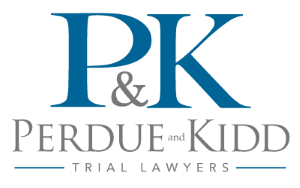
We know that every expectant parent expects to bring home a healthy newborn child. Birth-related injuries, some of which are preventable, can cause shock and pain to the parents and family at large. When parents receive news that their newborn faces potential lifelong disabilities, many questions arise.
If you carried your baby through a full-term pregnancy and have questions about why your baby went to the neonatal ICU, after labor and delivery, and whether your baby may have suffered a birth-related complication, you deserve answers.
A baby’s brain can sustain permanent injury over several hours due to lack of oxygen to the placenta during the labor process. Recurrent or persistent lack of oxygen to the baby’s brain while still in the womb can cause loss of nature’s normal protective mechanisms of a baby’s brain during labor. Some of the most common causes of a newborn brain injury suffered before, during or after birth can sometimes be avoided if there had been closer monitoring by physicians and nurses.
Many Causes of Birth-Related Injuries
There are many possible underlying causes of preventable birth-related injuries that result from improper or negligent medical care. Some of the most common causes are:
- inappropriate or incorrect use of Pitocin
- failure to recognize fetal distress
- negligence to identify non-reassuring fetal status during labor
- failure to resuscitate a depressed baby
- neglect to perform a timely cesarean-section birth
- inappropriate or incorrect use of vacuum or forceps instrumentation
When a full-term baby goes to the neonatal intensive care unit after birth, many parts of the mother’s and the baby’s medical record help to provide insight into whether a birth injury was
preventable and what may have caused your baby’s injury. For example, the fetal monitor strips provide insight into fetal-well being or distress during the process of labor and uterine pressure monitoring can help provide insight into the baby’s response to uterine contraction patterns.
Once a baby comes into the world, much can unfold about whether a baby has been injured during labor and delivery and how well the baby can survive without resuscitative measures outside the womb. We utilize a variety of tools that we find in the medical records to determine whether there was a lack of oxygen during labor and delivery or post-partum. Early neurological findings can range from manifestations of twitching, poor muscle tone (hypotonia), stiffness (hypertonia) and seizure activity. Early diagnostic imaging such as ultrasound and MRI can help provide significant insight into your baby’s prognosis. This may affect future disabilities involving cognition, speech, learning, and coordination. We also know this as cerebral palsy.
Experienced Birth Injury Lawyers
Newborn birth injuries can be financially and emotionally devastating. We encourage you to let us put our years of expertise and prior successes to work. We understand the dilemmas you face about potentially filing a birth injury lawsuit. Consider, however, that a birth injury lawsuit is about protecting the future interests of your child. They may face a wide array of medical problems which will require ongoing support. Let us help you optimize your child’s health and quality of life.
At Perdue & Kidd we work on a contingency basis so that you will not have to pay any legal fees or expenses until settlement. We invest a personalized approach to every birth-related injury case we handle. Perdue & Kidd is proud that our services have helped many children and their families who provide care to them. Meeting with our medical malpractice team gives you the benefit of years of legal and clinical expertise in this field. Contact us Online or chat with us 24/7.
Follow us on Facebook!


